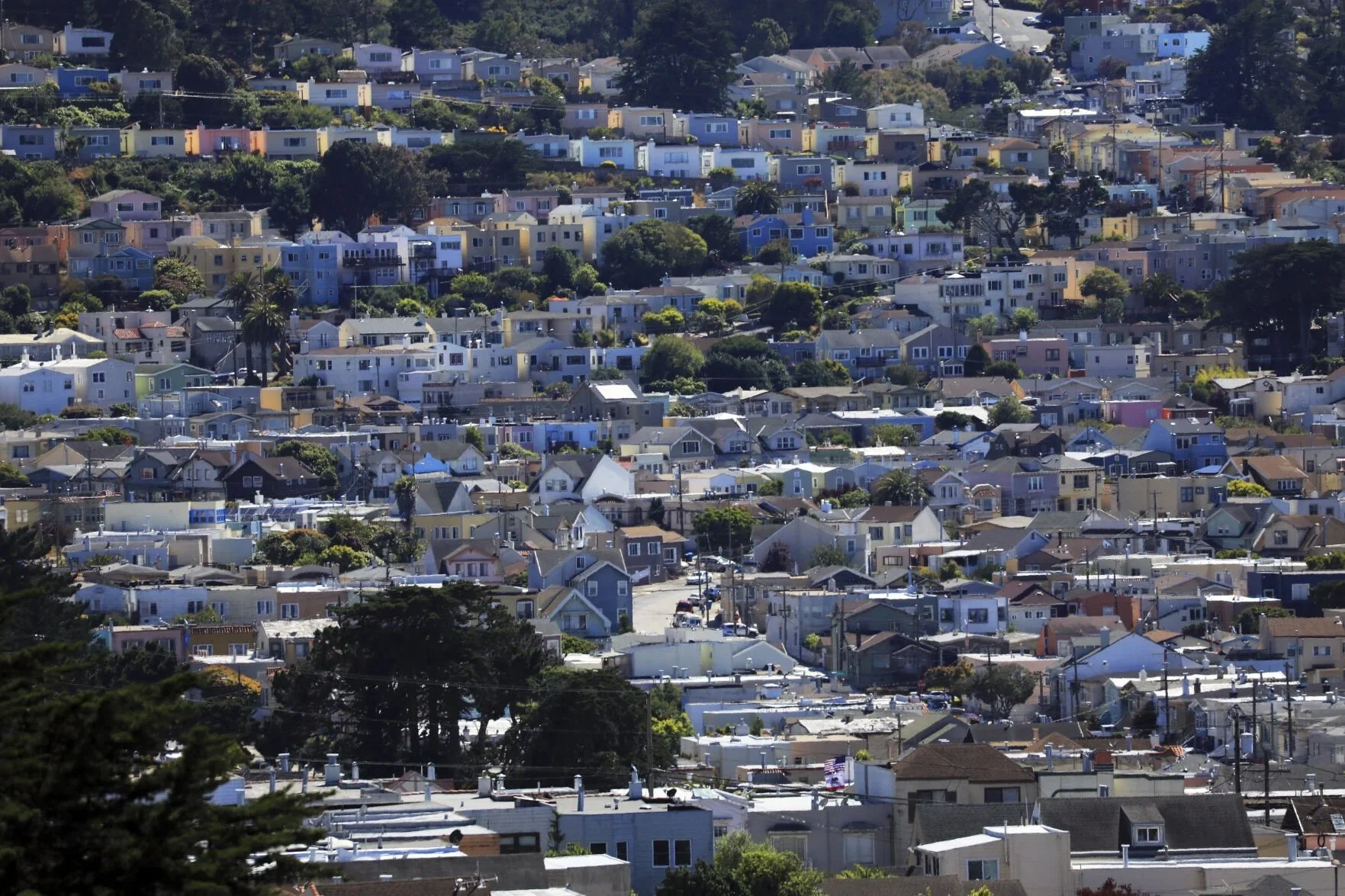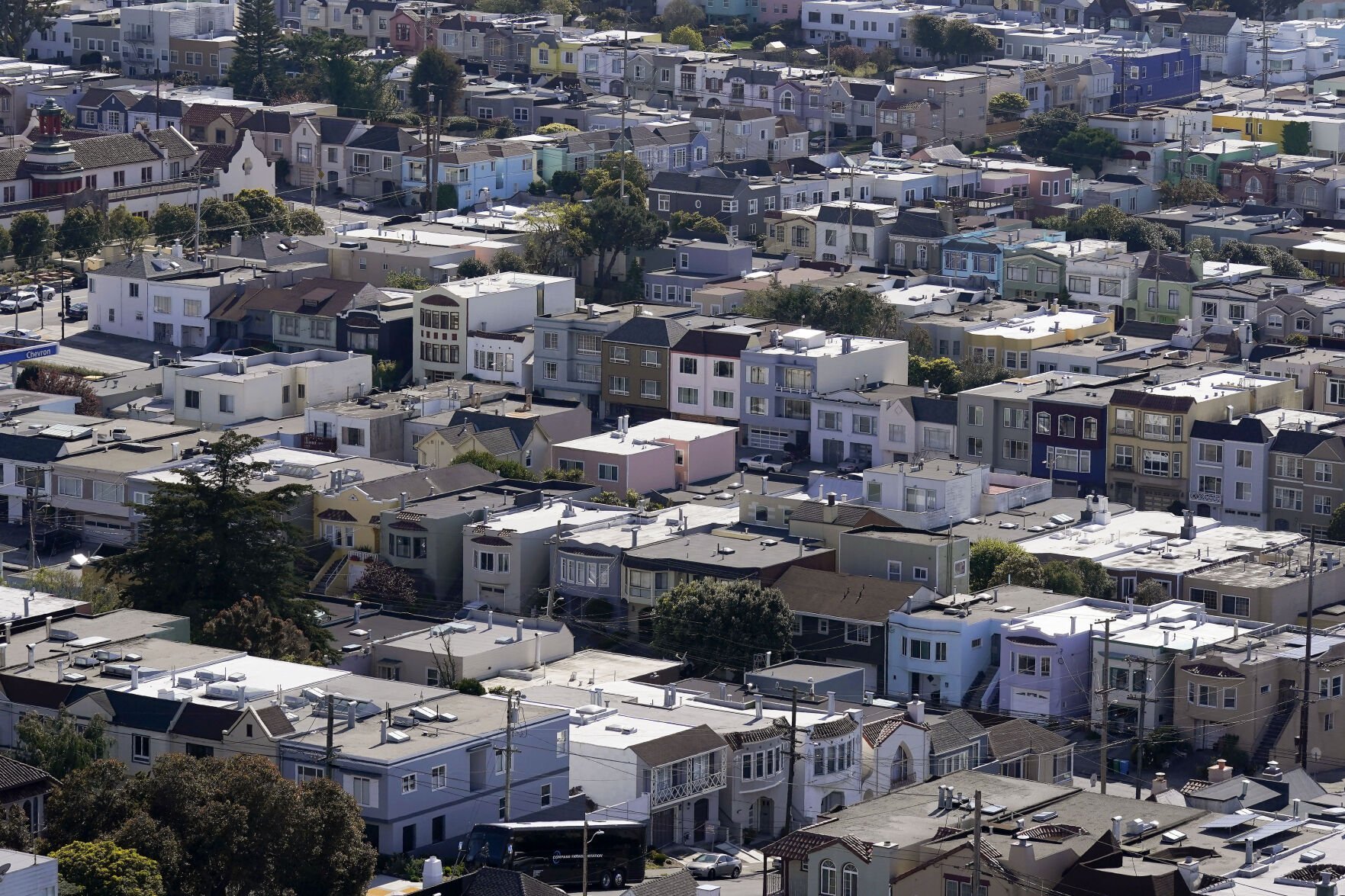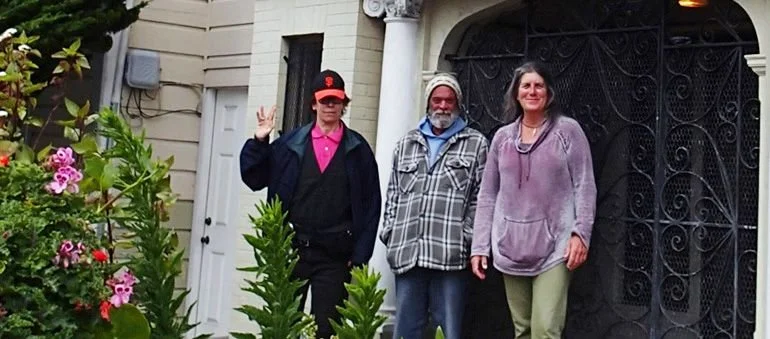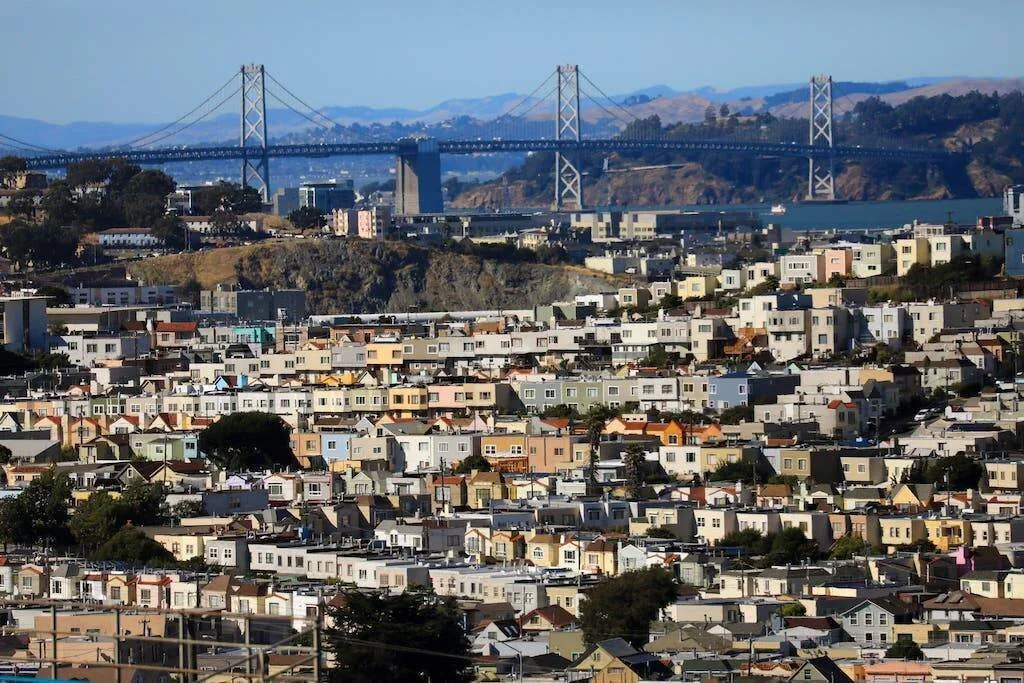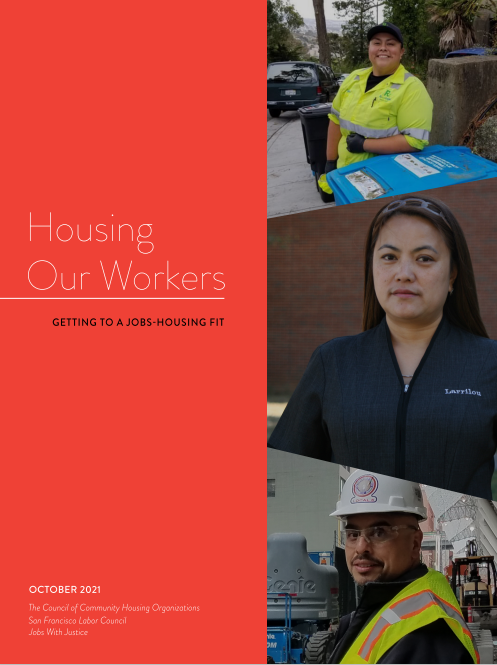CCHO IN THE NEWS
Planning Commission passes Lurie plan over strong community opposition
September 12, 2025
By Serena Finney and Tim Redmond, 48 Hills
Quintin Mecke, director of the Council of Community Housing Organizations, made the central political point: “This city has been having such a bizarre conversation, focusing on zoning and not production.” He said that tens of thousands of units have already been approved, but aren’t getting built, and yet “we continue to image that zoning will solve all these problems. … We are handing the reins of the most important issue in San Francisco to private developers.” He also noted that the plan allows the transfer of public land to private interests, undermining affordable housing.
S.F. Mayor Lurie’s ‘family zoning’ housing plan wins its first major approval
Quintin Mecke, executive director of the Council of Community Housing Organizations, said: “The city has been having a bizarre conversation around housing where we keep focusing on zoning and we are losing absolute connection to production.”
What happens to property values after upzoning? It’s complicated
July 4, 2025
By Keith Menconi, SF Examiner
As San Francisco’s recently submitted upzoning proposal works its way through the legislative process, separate efforts are underway to pass companion measures intended to boost tenant protections and also pave the way for an expansion of publicly subsidized affordable housing for low-income residents.
But some remain skeptical that these efforts will be sufficient to deal with the housing disruptions that upzoning may unleash.
“I think that the challenge around displacement is real,” said Quintin Mecke, the executive director of the Council of Community Housing Organizations, which advocates for affordable housing in San Francisco. “That’s small businesses. That's low income households. That's communities of color. And we just make that part of the equation, rather than challenging that.”
SF zoning reforms won't build more homes — here's what will
June 9, 2025
By Quintin Mecke
We are living through a housing crisis. But it is not just a crisis of units — it is a crisis of values.
In San Francisco today, the dominant narrative reduces the housing conversation to a binary: Either you support building more housing wherever and however the market allows, or you are the obstacle.
That’s a false choice. And it’s preventing us from seeing what a truly abundant, equitable city could be.
At the Council of Community Housing Organizations, we believe the real question isn’t whether San Francisco should build more housing. The questions are: What kind of housing? For whom? Built by whom? And to what end?
Building the affordable housing San Francisco needs
March 7, 2023
By Karoleen Feng, Gina Dacus, Anni Chung and Maurilio Leon
The certification of San Francisco’s Housing Element by the California Department of Housing and Community Development is a big milestone, and it provides The City a powerful impetus to address the housing affordability crisis. With a mandate to build 46,000 affordable housing units out of 82,000 units total, San Francisco must rise to the occasion.
As a coalition of nonprofit organizations that have built housing for extremely low- to moderate-income San Franciscans, the Council of Community Housing Organizations seeks the inclusion of equity and affordability strategies in Mayor London Breed’s Housing for All Plan. This gives San Francisco a fighting chance to achieve the affordable housing goal in the 2023-2031 Housing Element cycle.
SF’s affordable housing plan struggles to fill vacancies
December 21, 2021
Mission Local
Peter Cohen, the co-director of the Council of Community Housing Organizations, said he and other organizations sent a list of Small Sites reforms to the Mayor’s Office of Housing on Aug. 31, though conversations about resolutions began as early as January. But like mayor’s offices in the past, the office has been “rigid and unwilling” to reform it, Cohen said.
“What is the reason they are stalling?” he asked.
As supervisors and housing advocates point out, neither the problems nor the solutions appear insurmountable.
The cost of continued growth in SF: $20 billion for affordable housing
December 13, 2021
Finally, a city study looks as the price tag for the pro-development policies of the past.
The planners used information like new office building applications, but those may never be built. The report ignored other types of job growth, like gig work, retail, and related services.
As the Council of Community Housing Organizations noted, This JHF assumes mostly Office growth and leaves out projections for Retail, hotel, PDR and arts uses, reducing the projected need for affordable housing. Some of the Area Plans and Major Projects listed in the Jobs-Housing Fit analysis also seem to show significantly less retail, hotel, and PDR and arts uses than contemplated in the EIRs for those area plans and projects.
In other words: The shortfall in affordable housing could be worse than the city suggests.
$64 Million Vote for Social Housing Passes in SF
December 2, 2021
A measure to set aside $64 million for social housing was approved by the city’s Board of Supervisors by an 8-3 vote on Tuesday, according to 48 Hills. The measure allocates the money to a city program called the “Small Sites Housing Acquisition Program,” which purchases housing whose tenants are at risk of eviction and keeps the building permanently affordable. Mayor London Breed opposed the measure on the basis that the small sites program was problem-plagued. Breed will still need to approve spending on the program, but the measure’s approval gives advocates more leverage. As soon as the measure was passed, Breed announced a plan to reform the small sites program by adding an additional $10 million of funding, possibly a sign she will work with the board of supervisors on spending the money.
Supes pass key affordable housing bill with a veto-proof majority
November 30, 2021
The Council of Community Housing Organizations noted:
This action by our City legislators was not simply about an installment of $64 million to invest in affordable housing, but about listening to the voters who passed the Proposition I ballot measure overwhelmingly in November 2020 with the intention of funding a wide range of social housing programs: from preservation of small apartment buildings facing Ellis Act evictions to large residential hotels deteriorating in the hands of private owners, from land trusts to homeownership cooperatives. This will result in real housing for real everyday people – from seniors and people with disabilities whose hard work built this city, to hotel and service workers, to the jobs we used to think of as middle-class, the educators, healthcare workers and electricians who can no longer afford a home in San Francisco’s inflated real estate market.
Emergency funding for Small Sites Program approved amid pushback from Breed
November 30, 2021
Despite the program's issues, affordable housing advocates deemed Tuesday's vote a victory.
"This action by our city legislators was not simply about an installment of $64 million to invest in affordable housing, but about listening to the voters who passed the Prop. I ballot measure overwhelmingly in November 2020 with the intention of funding a wide range of social housing programs — from preservation of small apartment buildings facing Ellis Act evictions to large residential hotels deteriorating in the hands of private owners, from land trusts to homeownership cooperatives,” said the Council of Community Housing Organizations — a coalition of affordable housing providers— in a statement on Tuesday.
San Francisco’s Chance to invest in housing our workers
November 16, 2021
By Fernando Martí, Kim Tavaglione and Kung Feng
There was a time when workers in San Francisco, teachers, nurses, craftsmen, hotel and restaurant workers, nonprofit service providers — the folks who built, run and proudly serve this city — could afford a stable, middle-class life for themselves in The City.
That’s no longer the case.
The majority of the housing built in San Francisco is unaffordable to most workers. The October 2021 report “Housing our Workers,” authored by the Council of Community Housing Organizations, the San Francisco Labor Council and Jobs with Justice, found that of 50,000 union workforce members surveyed only 7% could afford market rate rents in The City.
Meanwhile, San Francisco already has far surpassed the amount of new market rate housing development required by the goals of its 2014-2022 General Plan Housing Element, while building only one-third of the needed low-income and middle-income affordable housing. That imbalance and resulting housing instability has become more severe with the impact of COVID and its economic fallout.
Supes, labor advocates: City’s workforce desperately needs affordable housing
November 9, 2021
According to a report released last month by Jobs with Justice, the Council of Community Housing Organizations, and San Francisco Labor Council, the overall area median income for San Francisco is $93,250, while the 2020 median annual income of union workers is considerably less at about $67,350.
Given such disparities, the report found that while occupations like registered nurses made about $4,000 monthly, that’s barely enough to afford a one bedroom apartment in The City, which according to market rental rates goes for about $3,289.
Firefighters, sanitation workers, transit workers and nonprofit workers, among other occupations, earn far less so face even more barriers to housing, according to the report.
The report also found over 40% of the city’s union workers live outside The City.
Prospects dimmed for affordable housing for San Francisco educators
November 9, 2021
The school district put out a request for qualifications in 2019 for future educator housing but has “not explored further opportunities for the three sites at this time,” said district spokesperson Laura Dudnick.
“I don’t think the district right now, in the near term, is going to shift (priorities)” said Peter Cohen, co-director of the Community Council of Housing Organizations. “That doesn’t mean it’s the only way to develop educator housing. Does it have to be on district land? I don’t know.”
Co-Ops Could Help Solve San Francisco’s Affordable Housing Crisis
November 5, 2021
Co-op housing, having fallen largely to the wayside for decades, is getting a second look in San Francisco as the stubbornly high cost of real estate has displaced working class families, entire communities of color and generations of locals.
Cooperative housing — which can offer a less expensive avenue to home ownership — has been a model used to help combat displacement and gentrification in other cities nationwide.
“As an ecosystem and as a way of thinking about housing, both (co-op models) are really important,” said Fernando Marti from Council of Community Housing, a local housing nonprofit.
S.F. supervisor proposes big funding boost for housing acquisition program
November 2, 2021
However, the city’s Small Sites Program — an acquisition and rehabilitation loan program for small multi-family rental buildings that was launched in 2014 — is unable to respond to many requests for loans to acquire buildings through the program because of a shortage of money, according to District 5 Supervisor Dean Preston. On Tuesday, he announced legislation to create a $64 million emergency acquisition fund that he hopes will allow the city to scoop up of “hundreds of these units” in the current fiscal year.
The limited funding and disagreement over how it should be spent is causing the city to be more discerning in buildings it acquires through the program, but housing providers say that the lack of clarity on what type of buildings the city is prioritizing for acquisition is leaving some tenants at risk of displacement.
Smaller buildings have a higher per-unit cost than larger buildings, said Fernando Marti, co-director of the Council of Community Housing Organizations, adding that if the goal is save people's homes that have been targeted for eviction, "you might say it makes sense to pay higher per unit cost per building."
Report shows housing fails to accommodate low- and middle-income workers
November 1st, 2021
Only a fraction of certain union workers can afford to live in the city without working more than one job, according to a new report sponsored by the Council of Community Housing Organizations, San Francisco Labor Council, and Jobs with Justice.
The report investigates how jobs and housing “fit” together. Roughly 50,000 trade and union workers volunteered wage data for the study, which the UC Berkeley Labor Center analyzed and compared to local housing prices.
The report spanned industries from nursing to airport staff, and found that only 7 percent of those employees could afford market-rate rent.
Longtime S.F. housing activist is now facing his own eviction, despite the city’s moratorium
October 14, 2021
For three decades Fernando Marti has been among the progressive political activists demonstrating outside the homes of families facing evictions.
The sometimes raucous anti-eviction protests — often featuring Aztec dancers and burning white sage to chase away bad juju — are a staple of the city’s leftist political community. They’re a way to shame landlords, expand movements, and build momentum for new laws and policies that protect tenants.
They were protesting at the displacement of artists during the live-work loft craze in the dot-com boom of the 1990s, and the rash of tenancy-in-common conversions of the early 2000s. There were protests against a 2013 eviction of the family of 80-year-old Poon Heung Lee at Jackson and Larkin streets, and a few years later to save the home of 100-year-old Iris Canada at Page and Steiner streets.
“There is the question of saving someone’s home and then there are the policies and laws needed to address the problem,” said Marti. “(The rallies) put a face on it.”
So on Tuesday morning when Marti joined about 75 demonstrators on 23rd Street in Noe Valley to protest an eviction, it was both familiar and very different. That’s because this time the family being evicted was his own, and the faces giving meaning to the tale of displacement were that of Marti, wife Michelle Foy and their 12-year-old son, Carmelo.
“It’s a very strange thing to be fighting for your own home,” said Marti, who is an architect and co-director of the Council of Community Housing Organizations.
The Housing Affordability Crisis in the Context of the Governor's Recall Race
September 9, 2021
While strolling through an affordable housing community in downtown San Francisco, Executive Director of the Council Community Housing Organizations Peter Cohen points out it’s important to increase funding for buildings like these, so people like Larrilou aren’t forced to find housing hours from where they work.
“When you put together the lack of sufficient funding for affordable housing and the constant pressure of displacement on low-income folks, that’s why our crisis exists.”
Two state zoning bills advance in Sacramento, but opposition remains
August 24, 2021
In June, more than 50 affordable housing and housing justice organizations sent a letter to Governor Newsom and the State Legislature's leaders advocating five core principles to guide equitable development policy, which include "not pre-emption of zoning or approval processes for market-rate housing in communities at risk of displacement."
"SB 9 looks mostly symbolic and certainly not like an affordable housing strategy. Understandably, symbolism may have political importance, but it is different from substantive affordable housing policy," said Council of Community Housing Organizations executive director Peter Cohen.
He said the upzoning and "missing middle infill strategy" proposed by SB 9 could work if targeted to the right places — the "huge swaths of the region's suburban cities," rather than hot-market rapidly gentrifying cities like San Francisco and central San Jose and Oakland.
What Can a Public Bank Do For Affordable Housing?
August 5, 2021
“Part of the way that we finance affordable housing right now is through loans through traditional banks. And those loans are not necessarily made because traditional banks love to invest and lend to affordable housing, but because we have laws in place — the Community Reinvestment Act — that require banks to do that kind of lending. That said, those are the same banks that are investing in fossil fuels; are investing in, or have connections to, payday lending institutions, all sorts of kind of bad actors. And so the city’s investments, whether they’re in affordable housing or others, are now tied up with all of these things that at the same time, we’re passing resolutions and saying we as a city don’t support these things.”
— Fernando Martí



